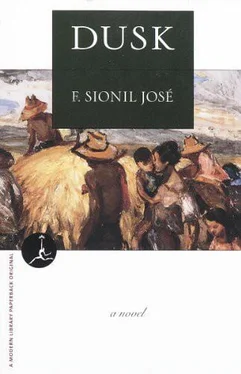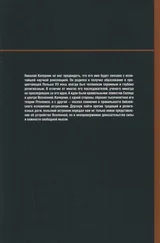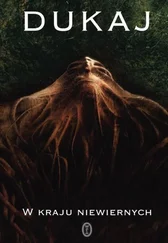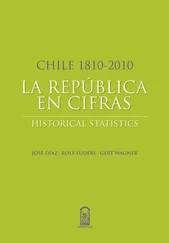“Here is the gizzard,” his mother said. She picked the piece from the still-steaming pot which she had placed in the middle of the low eating table and, as in a ceremony, placed it on Istak’s plate. Bit-tik, the youngest of her three sons, took the pot by its narrow rim. He was fifteen and hungry. He, too, had his favorite piece and he held the pot obliquely to the light and, shaking it, examined its contents.
“Enough of that!” Mayang whacked her son’s hand. She got the pot back, and with the ladle scooped out a leg and served her husband next.
Ba-ac picked up the leg and dropped it on Bit-tik’s plate. He turned to his wife. “Let him eat the best. There is no use fattening chicken if we only give it away to the priest.” He dipped his left hand — his good hand — into the pot and drew out the other leg. Shaking it before his wife’s face, he continued, “How many did An-no bring to town? How many did we give for the salvation of our souls?”
Mayang was worried. Her husband was talking loudly. The neighbors might hear; they were all relatives, but still, what he said was almost blasphemy. She feared moments like this. It was as if in the caves, in the corners among the torn fish traps and under the house, gnomes listened. She had known him all her life, even when she was still a child and he was already a man. She was just forty, almost thirty years younger than her husband — and the first touch of gray had come to her hair. She wore the drab gray cloth which she herself wove for the family and had suffered the weaving, sitting for hours before the wooden loom under the house until it was too shadowed to see the shuttle and yarn, and now she seemed to have developed a stoop as well. Her head bowed, Mayang cupped with her fingers a small ball of rice from her plate.
“I am speaking to you, Old Woman,” Ba-ac said, his voice rising. “I ask again, how many chickens and eggs have we sent to the new priest while you let your sons starve?”
“Ay, Old Man, you haven’t learned.”
She turned to her two boys as if she wanted them to agree with her. At her right, Istak was hunched before the table. If he stood straight, he was taller than his father. His brow was high, implying to her a keenness of mind. He had, after all, stayed in the convent for ten years, teaching catechism not just to the children of Capitán Berong — Cabugaw’s wealthiest citizen — but to the offspring of other mestizos. Padre Jose had opened to him not just what he knew of philosophy but also practical knowledge that had enabled him and the other Augustinians to thrive in another land, often inhospitable, often alien to their own customs. Istak’s hair, though cropped short, was not bristly like a pig’s, but soft and pressed flat and shiny with coconut oil which made not only his hair but his skin shine in the sallow light.
Ay! He was indeed the marked one, and on his face — once pale like a banana stalk — Mayang’s eyes lingered.
The oil lamp started to flicker and Istak pushed out the reed-marrow wick. He reached out to the corner and took a small jar filled with fresh coconut oil and let a few drops trickle onto his plate. Then he filled the earthen hollow of the lamp. It burned brighter and showed clearly what hung from the palm-leaf wall — the squash headgear, the fish nets.
“Old Woman!” Ba-ac was insistent.
Mayang braved her husband’s baleful stare. “I want to cat, Old Man. Eat, too, and receive God’s grace.”
Her husband would not be mollified. He waved his stump of a hand. “It is not God’s grace but ours,” he said hotly. “Ours which you sent to town today. How many chickens did you give that young priest so that he will save our souls?”
Mayang turned to her eldest son, as if in apology. “Your father Does not know what he is saying—”
“I know,” Ba-ac interrupted her. “You answer my question.”
“You will know when An-no returns with our indulgences,” she said, trying to humor him, for her tone became light. She went to the jar by the stove. When she returned, she had a large coconut shell filled with drinking water.
“I will not wait for An-no,” Ba-ac said. He turned to his eldest son. “You helped catch the chickens, didn’t you? How many were there?”
“Five, Father,” Istak said softly. He dropped the ball of rice he had just lifted to his mouth. He had lost his appetite as the old and nagging futility of it all started to ride him again. He could not understand why he felt weak like this every time his father, in his blabbering rage, shook his stump of a hand as if it were some proud emblem.
“Five chickens for his birthday. Multiply that by a thousand because there are a thousand households in Cabugaw. How many then will he get on his birthday? Think — then look at us. How many times do we have chicken on our table? Istak did live well when he was in town! He should go back there so we can be sure that when we send food to the convent, our son will benefit from it.”
“I am no longer wanted there, Father. You know it.”
“Be it that way then,” Ba-ac said. The old man leaned forward, clenched his one good hand, and brought it down viciously on the table. The plates shook and the light — almost drowned by the oil — sputtered and dimmed.
“Stop this foolishness, you one-handed fool!” Mayang screamed. It was her time to be angry. Bit-tik continued eating, unmindful of what was happening. He straightened the pot and stirred the broth to see if there was some special piece he might yet pick.
“So I am one-handed,” Ba-ac said, his voice quivering. “They should have killed me instead of lopping off just one hand.”
“Be glad that you have one left; be glad you are alive, that you have sons who tend the field and look after you.” She was no longer eating. The night had become grim.
Istak stood up and, without a word, walked away from the table. The slats creaked under him and the bamboo ladder, too, as he stepped down into the yard, where even the fleas must be asleep at this hour. He passed the bull cart parked in the shadow of the house. Tears burned in his eyes and he tried to hold them back but could not; so, too, the shame and the rage that had become a noose around his throat. He sat down on the tamarind stump by the bull cart and sobbed quietly. Let me not think ill of my father, for he has suffered. I never had and if at all, it is but here in the mind. I was never tied to a post and lashed, nor hung by one hand till the arm rotted off. But I have known pain just as keen because it lashed at the mind and heart. If only I were in Cabugaw again.…
Only a month ago, he had lived fully, complacently, serving the kindly priest. But Padre Jose had grown old and had to be retired in Bantay. And one morning, in the motionless clarity of April, a carriage drawn by two Abra horses rolled into the churchyard and disgorged a young priest. His black cassock, unlike Padre Jose’s, which was always soiled and frayed, was neat and pressed. His eyes were sky blue and his hair was the color of honey. His mouth was large and sensuous, and his voice when he summoned Istak brimmed with authority. Istak kissed the white hand, and as he looked up, the blue eyes regarded him, “You must be Eustaquio,” the young priest said, and Istak replied in polite Spanish.
“Padre Jose thinks you should study in the seminary in Vigan. I have heard you are quite learned, you even know Latin.”
But of what use was all this knowledge now? Around him was the night, total and vast, the cold sparkle of stars. The lamps of the other houses had all been snuffed out, but the crown of the dalipawen tree was ablaze with a thousand fireflies, and on a night like this, the spirits would be there, in harmony with the world in a way he was not.
To the west, rockets swished up the black bowl of sky, then burst among the stars, and moments later, the hollow whumps of their explosions came. It was like this, too, when the birthday of Padre Jose was marked as the birthday of the new priest was now being celebrated. Istak recalled how mountains of food and fruit from as far away as Manila would be set in the hall of the convent and the crowds would spill beyond the church doors into the yard. And shortly after the High Mass, in the heat of day, the old priest would sit on his carved, broad-backed chair in the shadow of the convent door and there the long line would begin — the principalia first, the village leaders, then the people — all would come to kiss the old man’s hand and present their tokens of respect and indebtedness.
Читать дальше












